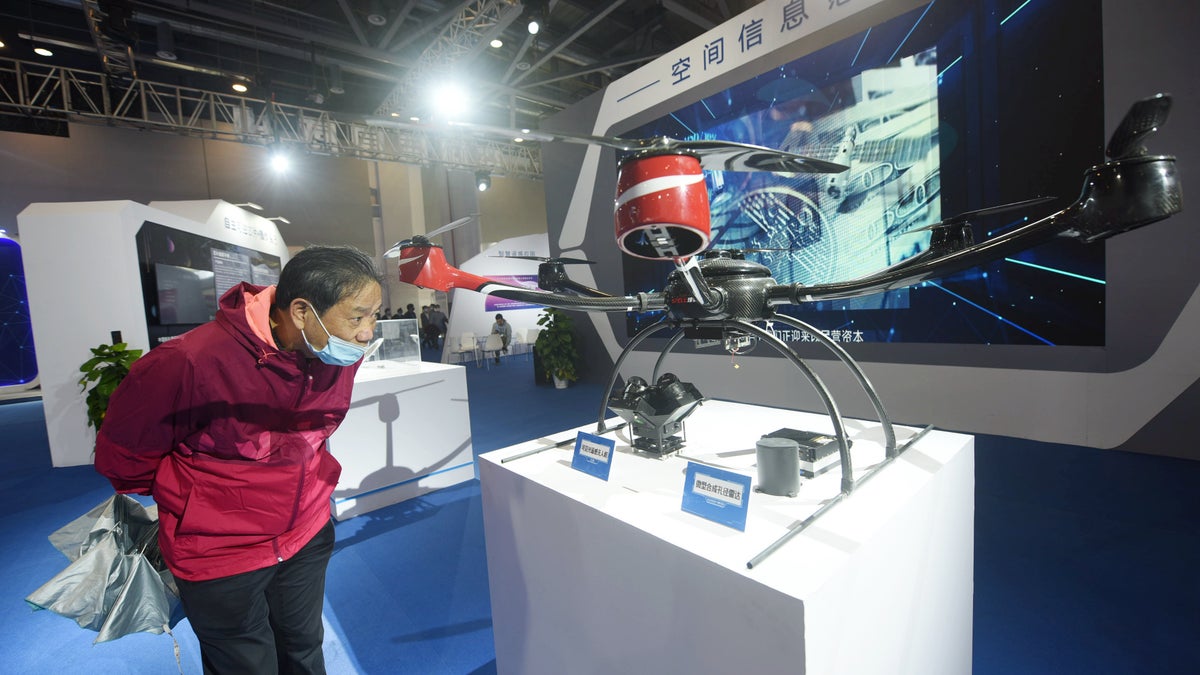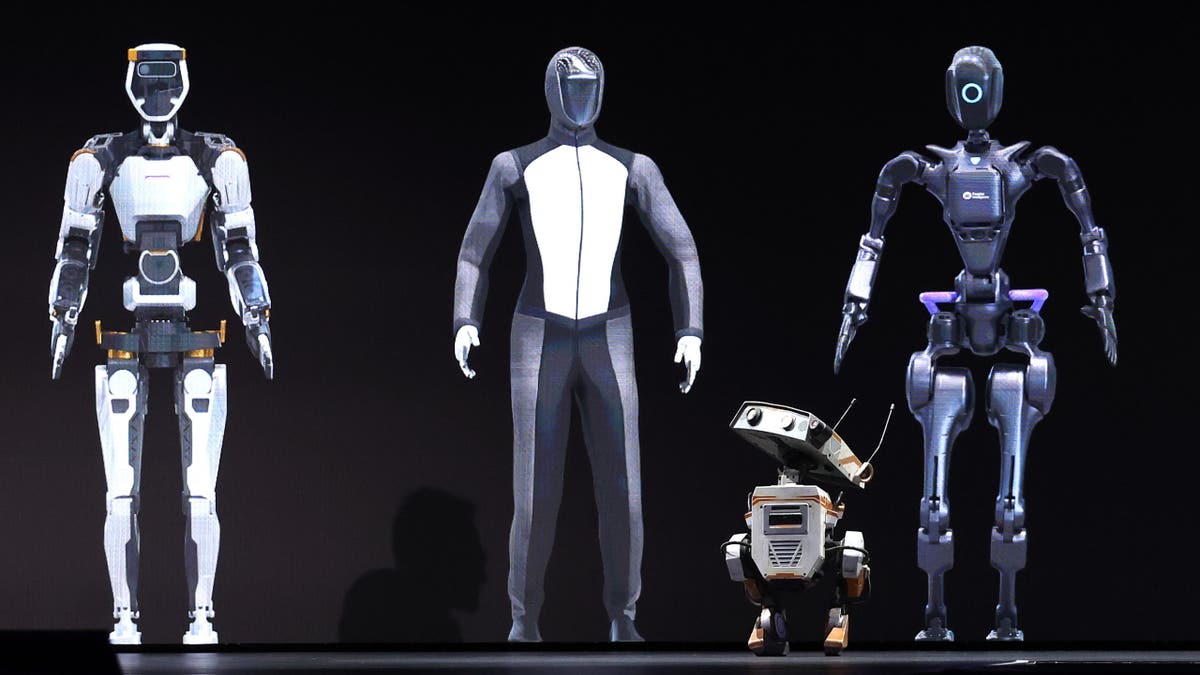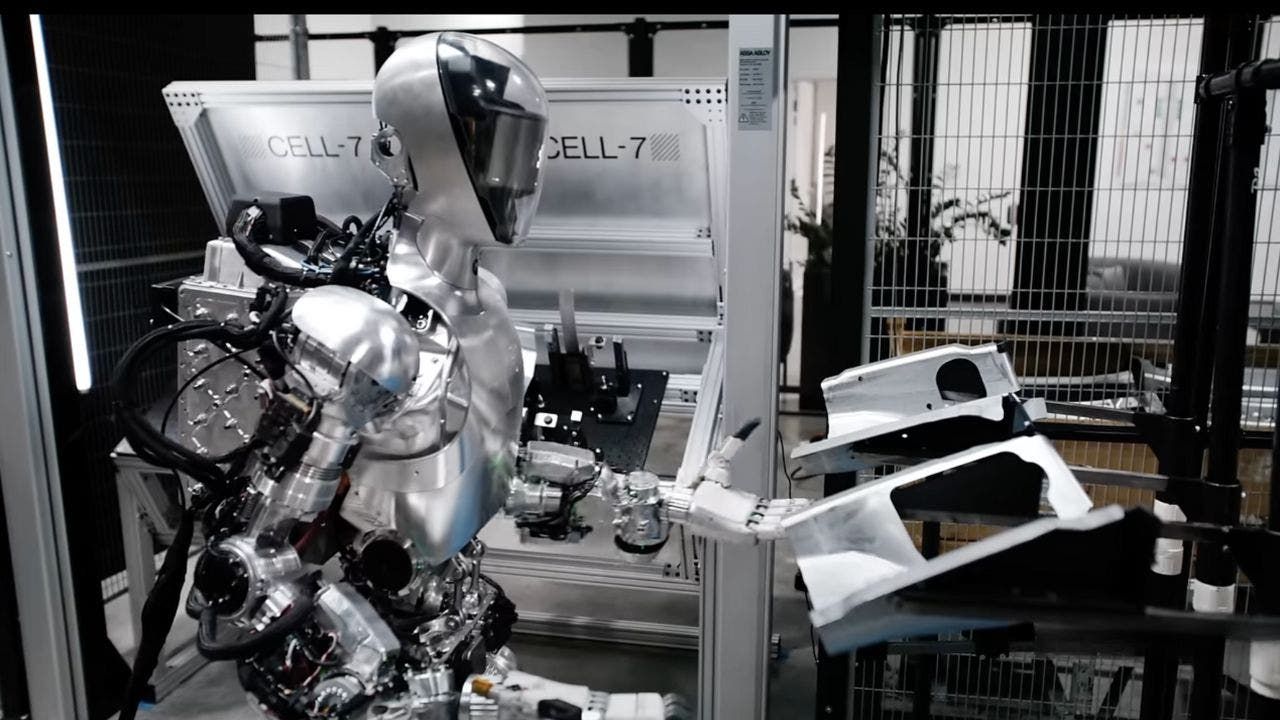The United States led another study looking at the fastest-growing artificial intelligence (AI) industries in the world, according to a new report.
“AI technology is advancing rapidly around the world,” ZeroBounce founder and CEO Liviu Tanase said of the report. “This is driven by significant private investment and a growing number of AI startups.”
“Over the past decade, billions have been invested and we are seeing a substantial increase in AI-related job opportunities and innovation,” Tanase said in a statement. “Companies are developing an AI-skilled workforce to remain competitive.”
“As various industries continue to integrate AI, these investments and developments will play a pivotal role in shaping the future of global technology,” he added.
FORGET DRONES, THIS SMART STREET ROBOT COULD BE THE FUTURE OF LOCAL DELIVERIES
A humanoid robot works in a BMW assembly plant (Kurt “CyberGuy” Knutsson)
The ZeroBounce report looked at 10 countries that have demonstrated strong AI development and capabilities: the United States, China, the United Kingdom, Singapore, Canada, South Korea, Israel, Germany, Japan and Australia, according to the Jerusalem Post.
The company said it relied heavily on data from the websites Statista and GlobalData, as well as a general index of artificial intelligence calculated by Tortoise Media, a British news website founded by former BBC News director and Times editor James Harding in 2018.
WHAT IS ARTIFICIAL INTELLIGENCE (AI)?

Spectators look at a six-axis smart drone that can carry a small synthetic aperture radar at the Global Conference on Artificial Intelligence in Hangzhou, China, Oct. 16, 2020. (Costfoto/Future Publishing via Getty Images)
According to the composite score and overall index rating, the UK ranks lower than other countries due to fewer available AI jobs and talent, but the country has invested third in AI over the past decade and in the past year alone.
The study focused on private investment made over the past decade along with the number of AI startups and AI-specific jobs available in the market.
ADVANCES IN ARTIFICIAL INTELLIGENCE CAN BE BOTH A TOOL AND A THREAT, ACCORDING TO CYBERSECURITY OFFICIALS

A robot appears onstage as Nvidia CEO Jensen Huang delivers a keynote address during the Nvidia GTC Artificial Intelligence Conference at SAP Center on March 18, 2024, in San Jose, California. (Justin Sullivan/Getty Images)
The US has invested $335 billion in AI technology over the past decade and $67.22 billion in the last year alone, with around 5,500 startups. According to Enterprise Times, in 2024 alone, the US also had 71,000 job openings for AI, accounting for 1.62% of job openings.
Those numbers dwarf those of China, which invested about a third of that amount over the same period and created far fewer startups and jobs. But what China lacks in those areas it makes up for with a greater number of specialists.
Israel has featured prominently, and many reports have detailed the country’s strong push into AI investment and development to stay ahead of its regional allies. Ahead of October 7, Israel detailed its incredible capabilities and potential, particularly in law enforcement and military capabilities.
CLICK HERE FOR THE FOX NEWS APP
In a video that included animated segments to demonstrate the Barak tank's potential, an IDF operator was able to identify targets both in front of and behind his tank, thanks to a specially designed helmet that helped him filter data from the battlefield. The tank also seamlessly communicated the information to a nearby tank, which immediately responded to the data and identified the target.












